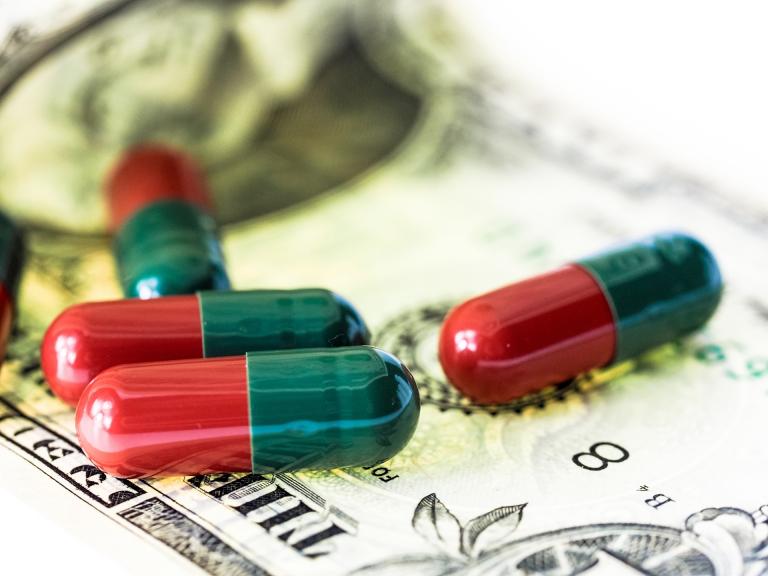Let me tell you a short story about my day that reveals a lot about our healthcare system, and our economy.
I went by the pharmacy to pick up some refills. One of my son’s prescriptions had gone from a zero copay to an $85 copay. The pharmacy staff seemed annoyed that I wanted them to be able to tell me why this was. At their suggestion, I finally ended up calling my insurance provider.
When I told the rep on the phone my issue, he responded with—and I quote—”Wow. That sucks.”
I mean … I assume you’re going for empathy there, bro. But it does not increase my confidence that you can resolve my issue.
And of course, he couldn’t tell me what had happened either. Everything on their end looked the same. I wound up back on the phone with the pharmacy, and this time lucked into a pharmacist who was willing to actually TRY to figure it out. Turned out to be a change with the manufacturer coupon that we got from our doctor. Nothing to be done about it, but at least now we know.
So allow me to preach a mini-sermon here about the evil pharmaceutical industry and people who get rich off of sick kids. This particular medication starts at about $340 per month. Our insurance takes it down to $285 (gee, thanks) and then that manufacturer coupon had been covering the rest. Now apparently it covers all but $85. It took me an hour of my life to get these questions answered, and now I’m still going to be out $85 a month for a medication that used to cost us nothing. And don’t get me started on what the bill would be if we skipped the meds but wound up in the hospital with breathing issues.
For my family, $85 is not a hardship. But for many people, this sudden and seemingly arbitrary change would mean the difference in filling prescriptions or buying groceries this week. This happens all the time, to families with kids and to elderly people on a fixed income. Your social security check stays the same, but your prescriptions can jump exponentially without a moment’s notice.

Healthcare professionals and researchers never see that money. It mostly goes to patent holders and high-level execs at the provider companies. (Google sometime what the CEOS of United and BCBS make in a year. It will make you sick, literally). Like that jackass who cranked up the price of EpiPens overnight, remember him? Yeah, he might be a special kind of despicable, but he’s not the only one of his kind. It’s all part of this thing called crony capitalism. It’s very real, and it’s a big part of the reason our healthcare system is so jacked.
My kid’s got his meds and we can still pay the mortgage this month, but let’s check all the points of privilege that makes this possible for me. First of all, I’ve got the mental acuity to make a few phone calls and figure out what’s up. I’ve got really good health insurance, all things considered. I’ve got access to a phone and internet connectivity to further help me navigate these systems. And, more than anything, I live at a level of economic security that means an additional $85 expense is not going to affect my ability to pay other bills.
But change any one of those factors and this unexpected expense becomes an ordeal. People in other kinds of scenarios have to make hard choices about these things, every day. This is but ONE part of the cycle of poverty that makes it so hard to function in this economy. When people talk smugly about “picking themselves up by the bootstraps,” they aren’t taking into account the brokenness of these systems that keep families in unbreakable patterns of hardship.
One of the most brilliant scientists I know chose a career in academia instead of the lab because she could not stomach how this industry functions. I believe the way she put it was, “I could find a cure for AIDS … but I’d have no control over what the market does to that discovery. And then what? We have a cure here, but only for the wealthy? And they’d never get it in Africa? And I’d be a part of that. I think I’d rather teach …”
It’s all so twisted, it’s hard to know where to start. But if you want to start SOMEwhere, to unwind all the dark money from our political system, and move towards a more just economy, we’ve first got to acknowledge our privilege.
And then, wherever you live and vote, you should know which legislators are in bed with big pharm dollars and get them out of there. We need politicians who aren’t benefitting from poor families and sick kids.
Next, we’ll talk about big gun money, and who gets rich off of school shootings. Then we’ll talk about big oil money, and who gets rich off of destroying the environment. Etc. Rinse and repeat, daily, ’til election day.
Any way you look at it, there are people making obscene amounts of money from things that do us great harm. And that’s a tough pill to swallow.












